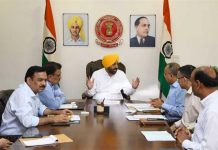Though the Centre has already appealed against it, SIMI leaders were ecstatic that a tribunal headed by the Delhi High Court judge, Geeta Mittal, rejected the Centre’s ban on the organisation on August 5, 2008. This is the culmination of a long, dry journey for them, who have contested three previous bans and lost every time. As required by the 1967 law under which SIMI was banned, the first tribunal was constituted to hear both sides and decide if there was sufficient ground to ban SIMI. SIMI’s leaders were convinced that the tribunal would see through the weakness of the case and blast the ban out the window. But the first tribunal upheld the Centre’s ban, as did the second and the third.
The reasoning offered by the tribunals in upholding the bans defies both law and common sense. Stunningly, the first tribunal said that while it was true that confessions cannot be accepted as evidence against the accused in their criminal trial, the tribunal could accept such confessions since it wasn’t a criminal trial. The succeeding tribunals stuck to this convoluted reasoning. No less astounding was the remark by the second tribunal that the fact that SIMI could mobilise funds to pay its legal fees itself proved that it existed and hadn’t disbanded as its leaders claimed. Tribunal after tribunal said that the fact that so many fresh cases had been registered against SIMI activists was proof that the group’s activities hadn’t ceased.
The most shocking of all has been the tribunals’ acceptance of “secret material” brought by the Centre, read alone by the presiding judge, and returned to the government, with no one else knowing what it contained. The 1967 law allows the government to claim privilege if divulging such information would imperil public interest. But it also says that the Centre must share the secret material with the party contesting the ban, in this case, SIMI. In a 1995 judgement, however, Supreme Court Chief Justice JS Verma said the government need share it only with the presiding judge and not with the contesting party. So in essence, while a judge rules that the secret information from the Centre is good enough to uphold a ban, the banned orga – nisation cannot know what that secret information is and, therefore, is severely compro mised in its right to defend itself against the charges.
Not one to give up on his faith in the Indian judiciary, Shahid Badr Falahi has challenged the findings of each of the first three tribunals in the Supreme Court. When SIMI’s counsel appeared before the Supreme Court judge at the time of admitting the appeal against the third tribunal’s report, the judge said: “Same activity, same result.” The lawyer for SIMI pointed out that the government itself said that during 2003-06 there had been no fresh activity from SIMI, the honourable judge shot back: “Is this a joke? Every time we confirm a ban you come back?” The counsel gently said the judge was wrongly informed, that every appeal was still pending at the Supreme Court and hadn’t yet been heard. Realising his mistake, the judge said the matter should be heard by a larger bench. In the six years since the first tribunal returned a finding, the apex court hasn’t yet found time to take up Falahi’s appeals.
On the other hand, in stark contrast, the elation of tribunal judge Geeta Mittal’s order has already abated. Though the Supreme Court has still not heard Falahi’s earlier appeals against the previous three tribunals’ orders upholding the bans, it has already reacted to the Centre’s appeal and stayed Judge Mittal’s order. “We will not give up,” Falahi says with conviction. “Justice must finally be ours as truth is with us.”













